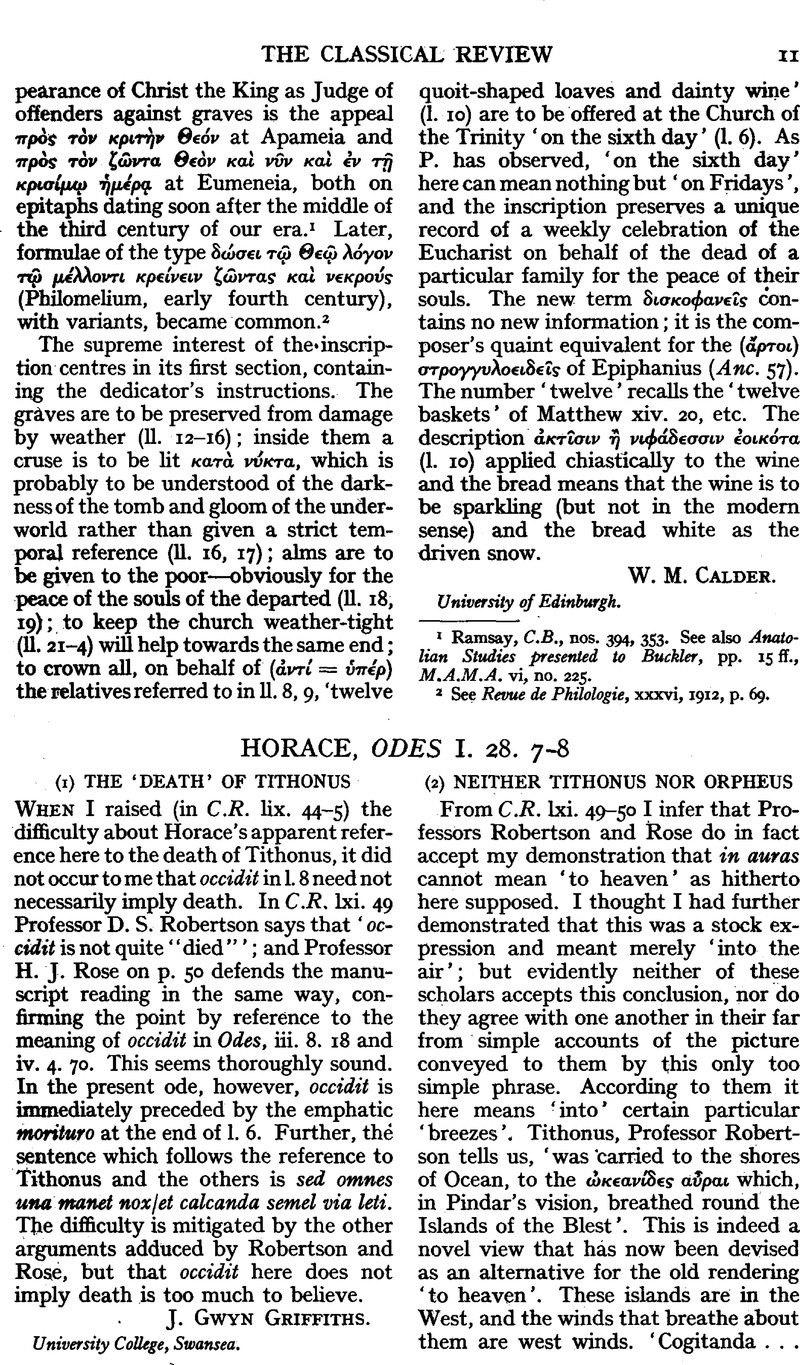No CrossRef data available.
Article contents
Horace, Odes i. 28. 7–8
Published online by Cambridge University Press: 27 October 2009
Abstract
An abstract is not available for this content so a preview has been provided. Please use the Get access link above for information on how to access this content.

- Type
- Review Article
- Information
- Copyright
- Copyright © The Classical Association 1948
References
1 I was there, of course, arguing against Mr. Griffiths's deduction that since it must here mean ‘died’ it was ‘inexact’; but what I wrote is obviously equally applicable as against this other view, which had occurred to me as one that nobody would ever maintain.
2 Rose's remissus appears to have been intended for an incidental improvement. That word is, of course, ruled out by the following admissus, with which it would make antithesis but not point.


